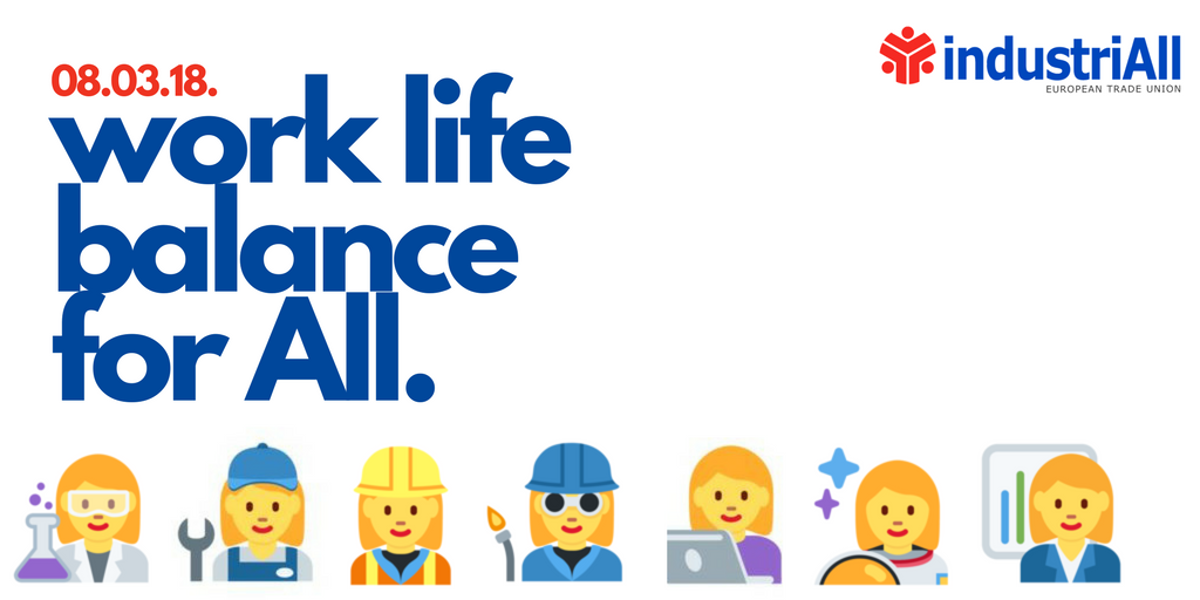According to Eurostat, the main reason for women in Europe not to work is that they must look after their children or relatives with long-term illnesses. Studies show that women in Europe spend twice as long on domestic chores as men – even if the men are unemployed and the women are in work. For many, part-time work is not a choice, rather a requirement to manage responsibilities at home.
EU legislation in this field will strongly enhance women’s employment opportunities and enables couples to share family-related leave more equally.
If adopted, the new Directive will strengthen rights in many Member States, according to a study commissioned by the ETUC:
- Paid paternity leave of 10 days – not yet the case in Cyprus, Czech Republic, Germany, Croatia, and Slovakia;
- 4 months paid and non-transferable parental leave – an improvement on existing rights in Bulgaria, Ireland, Italy, the Netherlands and the UK;
- 5 days paid carers’ leave - would make life easier for working people caring for dependent relatives in countries including France, Romania and Malta.
- An enhanced right to request flexible working arrangements in most EU Member States, especially Cyprus, Estonia, and Romania.
IndustriAll Europe welcomes in particular the enhanced possibility to request flexible working arrangements. The current lack thereof is a barrier to women’s participation in the workforce. IndustriAll Europe believes that women and men can make an equal contribution, both in the workforce and at home.
“Women represent just 20% of workers in industry. IndustriAll Europe believes that the proposed EU Directive on work-life balance would not only enable more women to pursue careers in industry, but also offer career development perspectives to women, which is vital in retaining talent up the ladder”, said Luc Triangle, General Secretary of industriAll Europe.
An enhanced right to request flexible working arrangements not only increases women’s career opportunities but also allows for greater sharing of the parental workload in families. The Work-Life Balance Directive will enable fathers to spend more time at home with their families and to assume more of their responsibilities within the household, lessening the burden on working mothers who often arrive home from their day job to start their ‘second job’ of cooking, cleaning and childminding.
The Work-Life Balance Directive is a step in the right direction, but we have a long way to go in ensuring equal opportunities not only in accessing the labour market but also in facilitating the career progression of female workers. Changing mindsets does not happen overnight but even 10 days of paternity leave has been shown to create lasting bonds between fathers and their children, ultimately benefitting all members of the family.
The labour market must take into account worker’s aspirations for how they wish to live their lives. Flexibility should not be defined only by employers without employees too having a say. Having the opportunity to fit your work around your home life has shown to make workers happier and often more productive.
The recent IG Metall collective bargaining agreement is one example of where workers’ demands were taken into account and better work arrangements made possible for all workers, especially those who are parents or caring for relatives. Making the workplace more accessible to parents will likely increase the percentage of female workers working in the German metal industry and hopefully also increase women’s representation in management and among union officials.
On the occasion of International Women’s Day 2018, IndustriAll Europe calls on all EU Member States to adopt the proposed EU Directive on Work-Life Balance.
